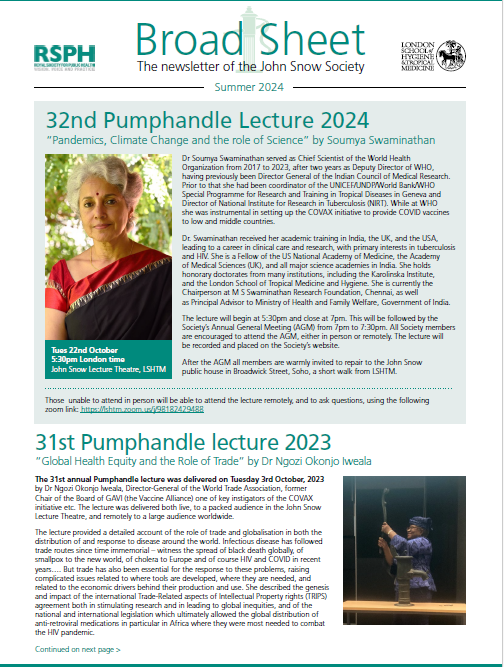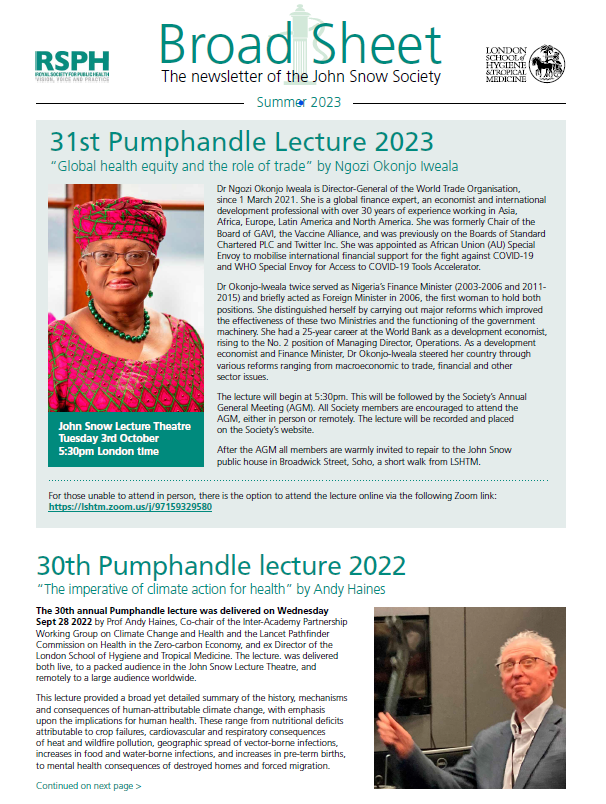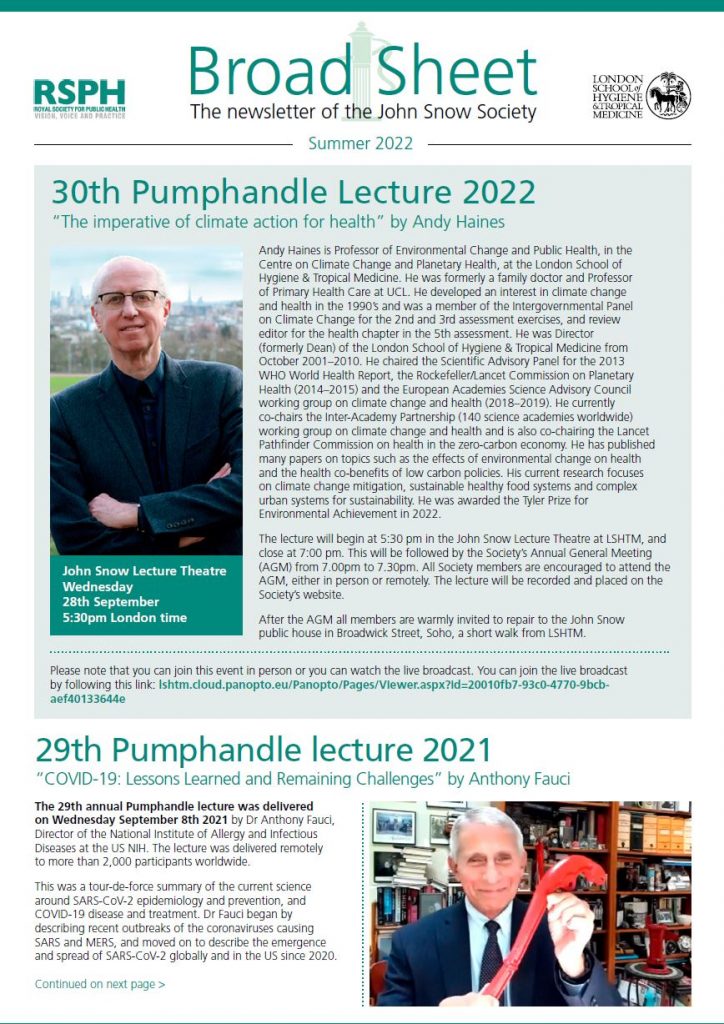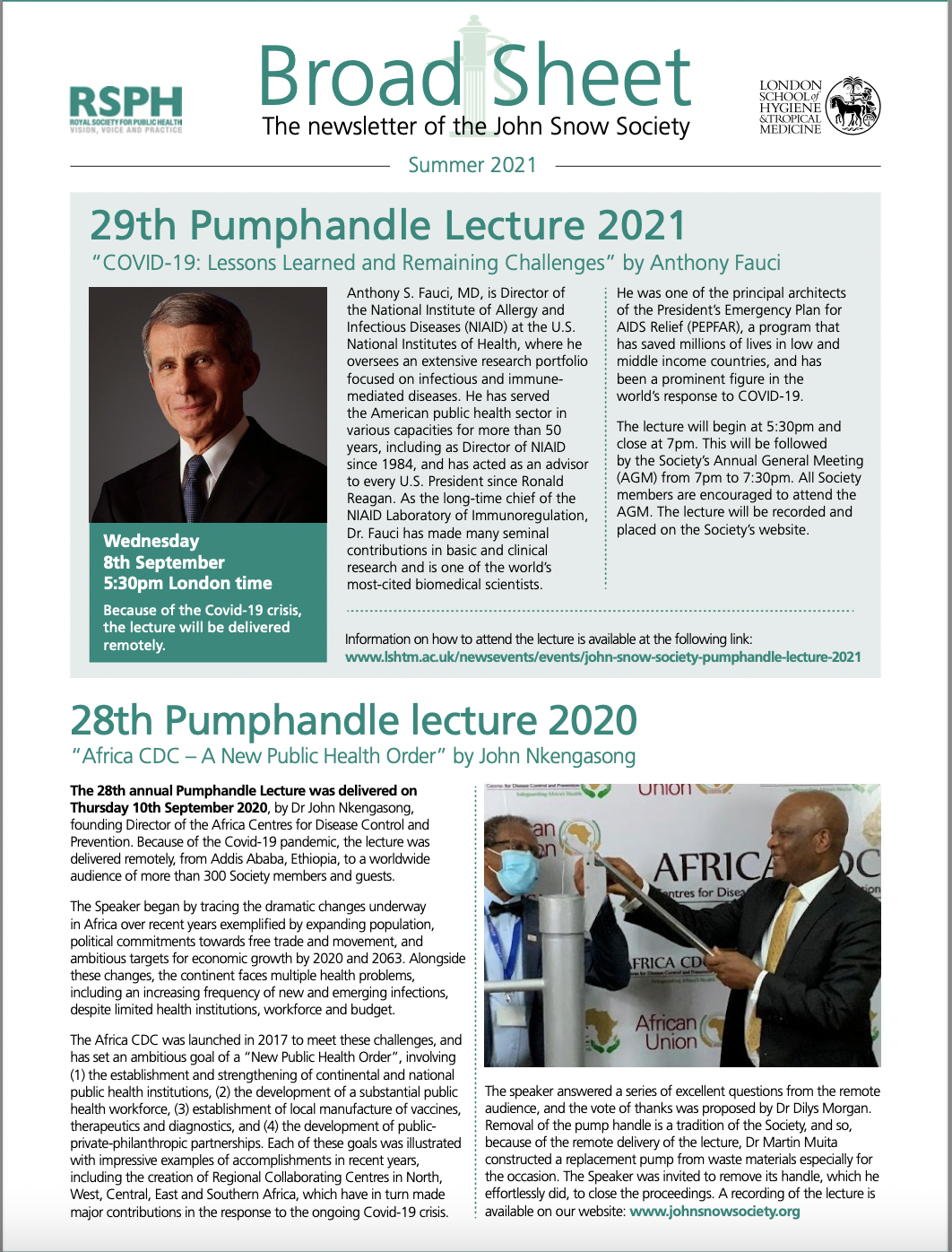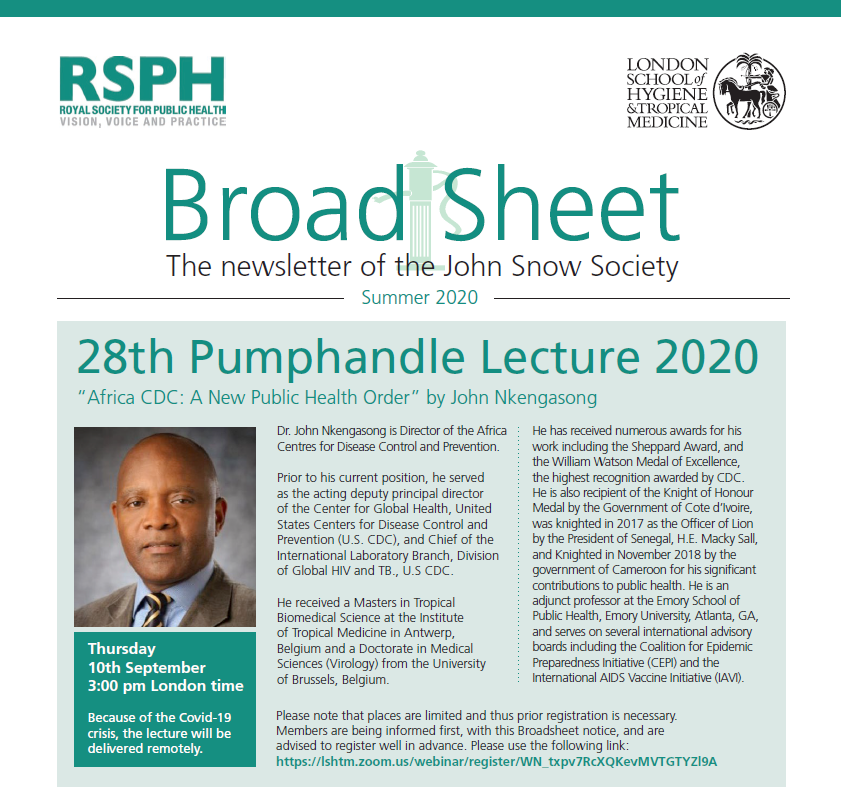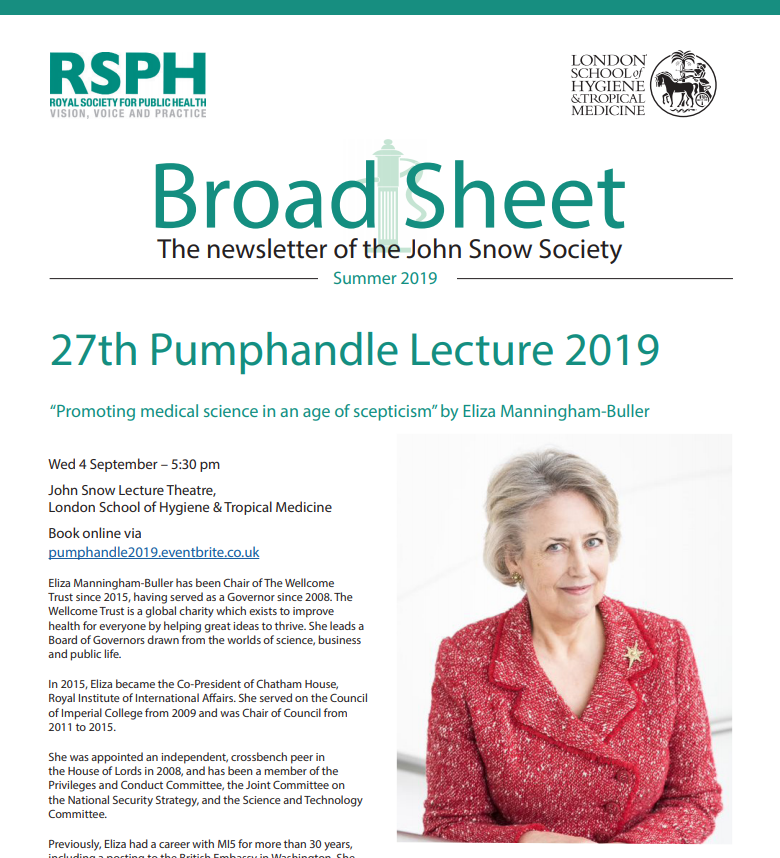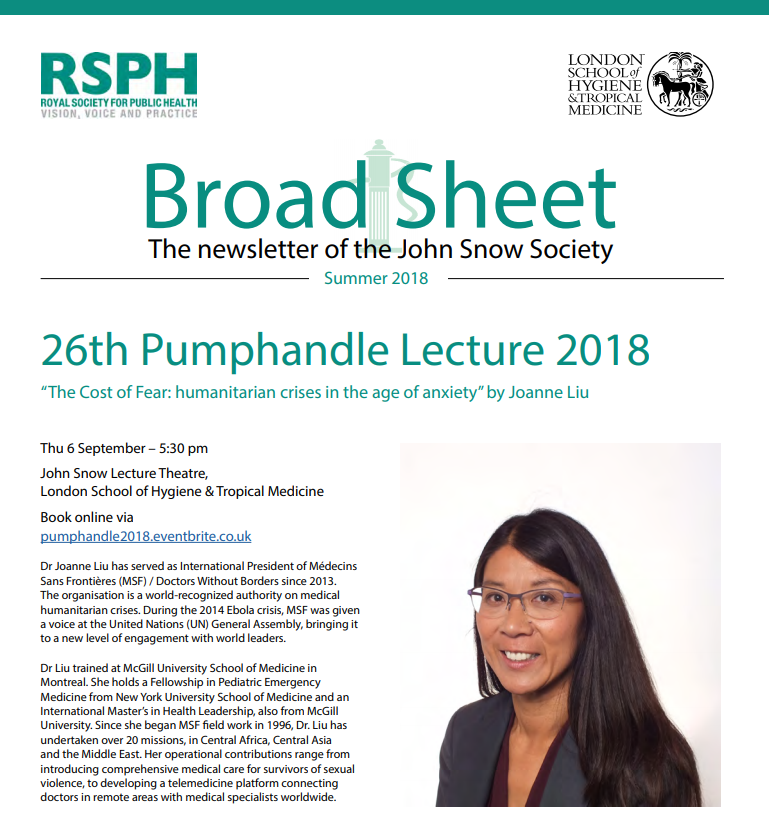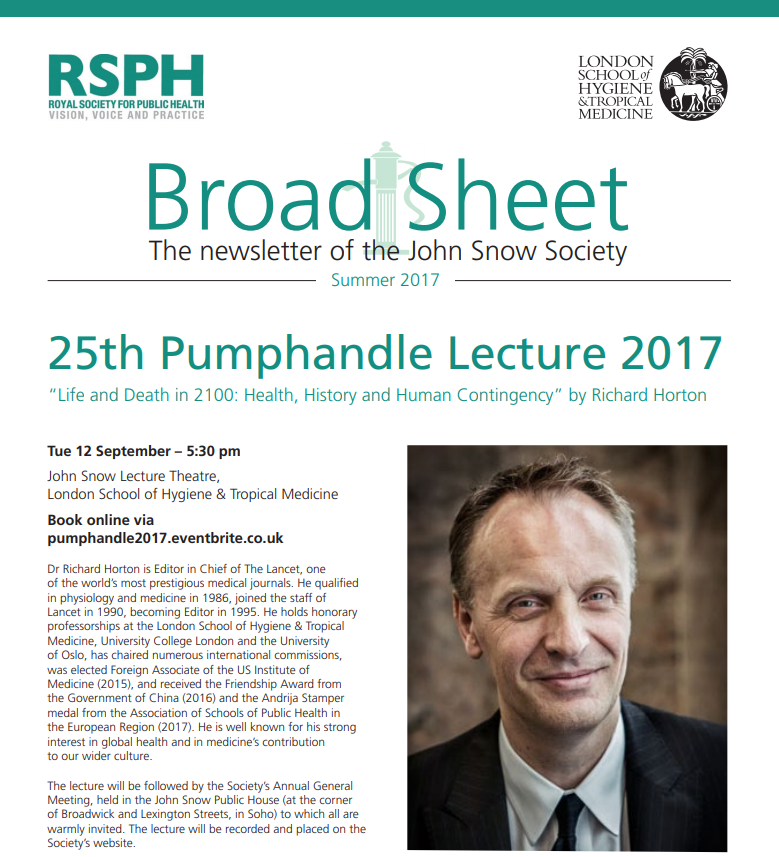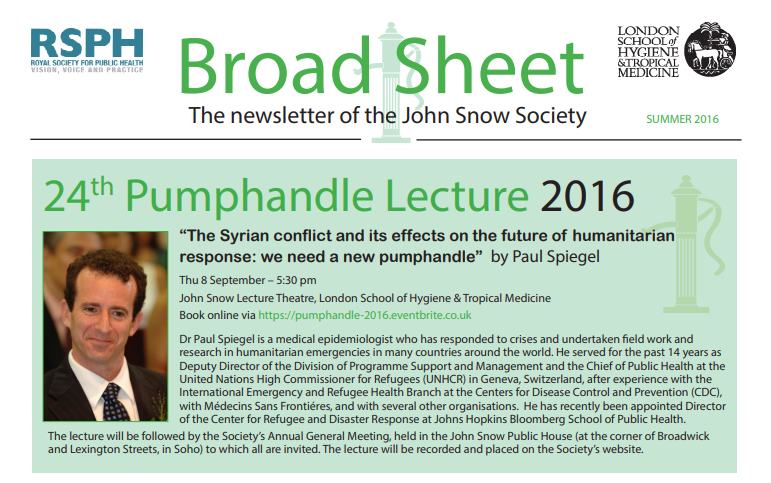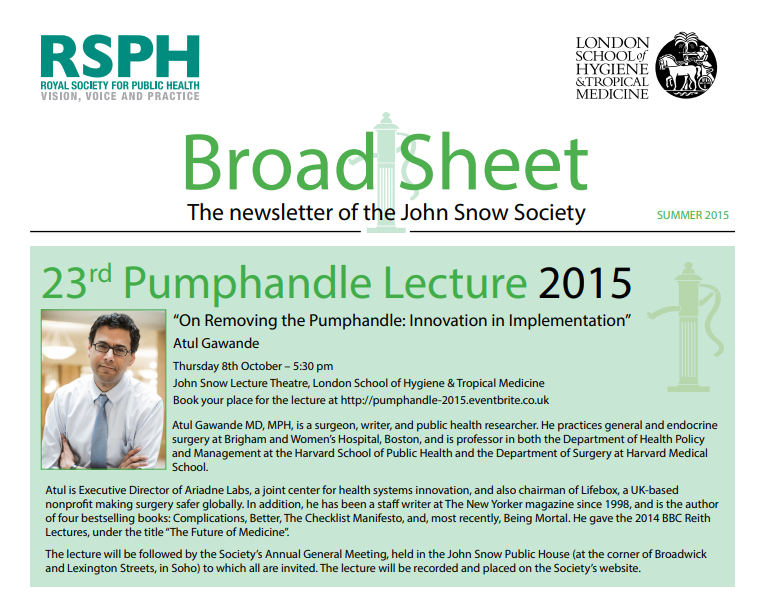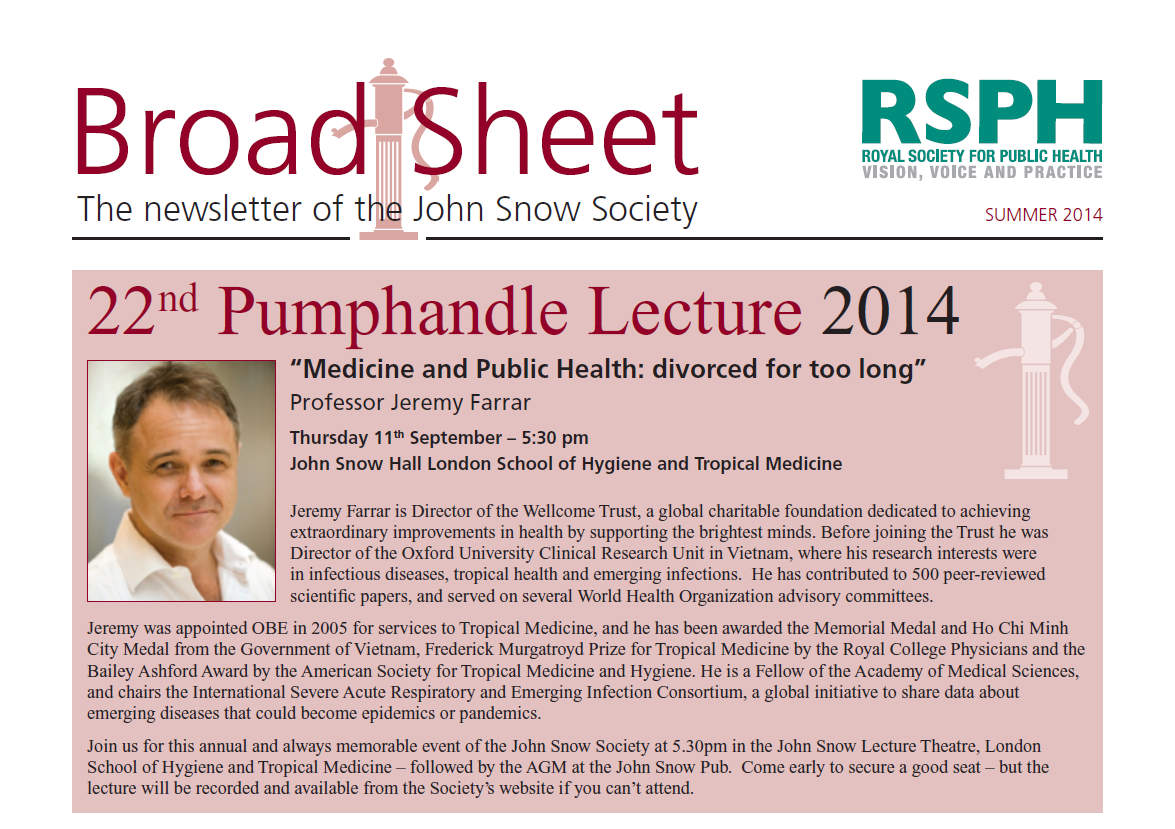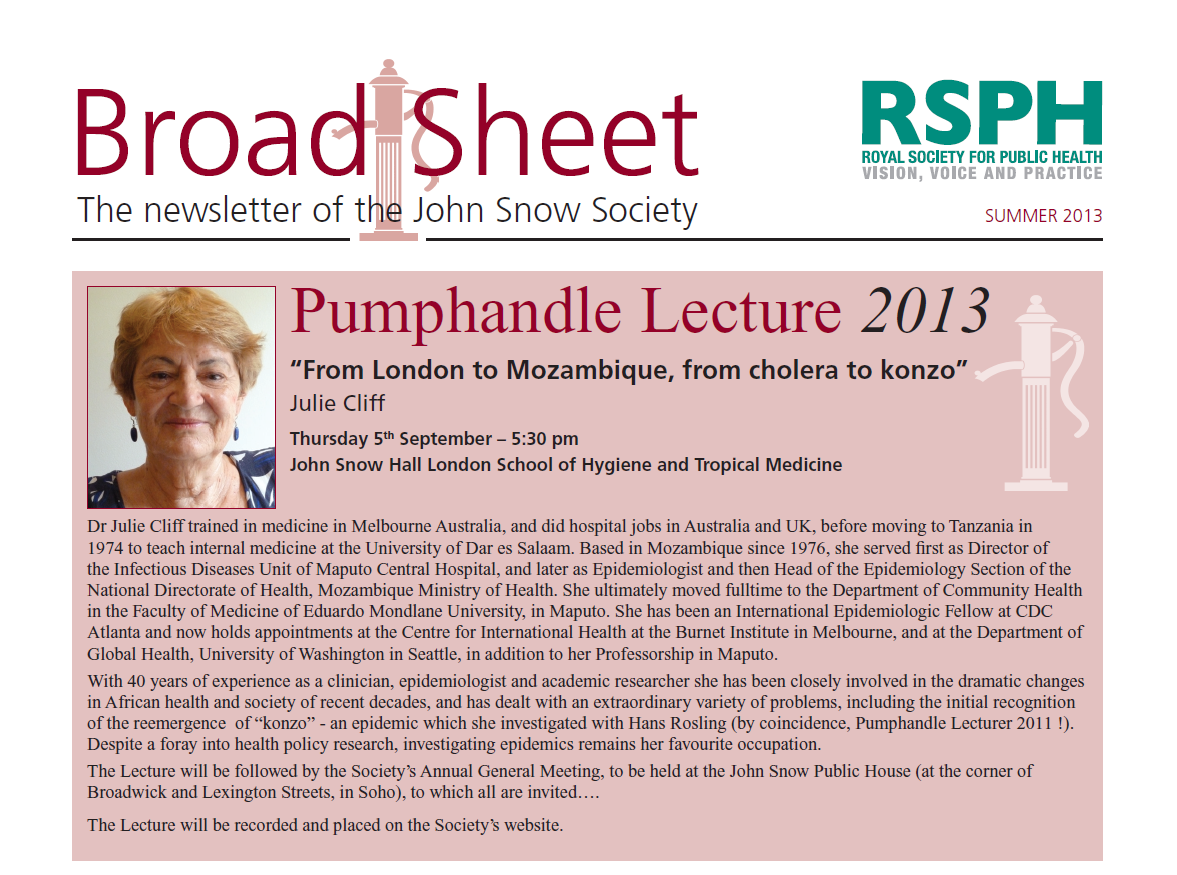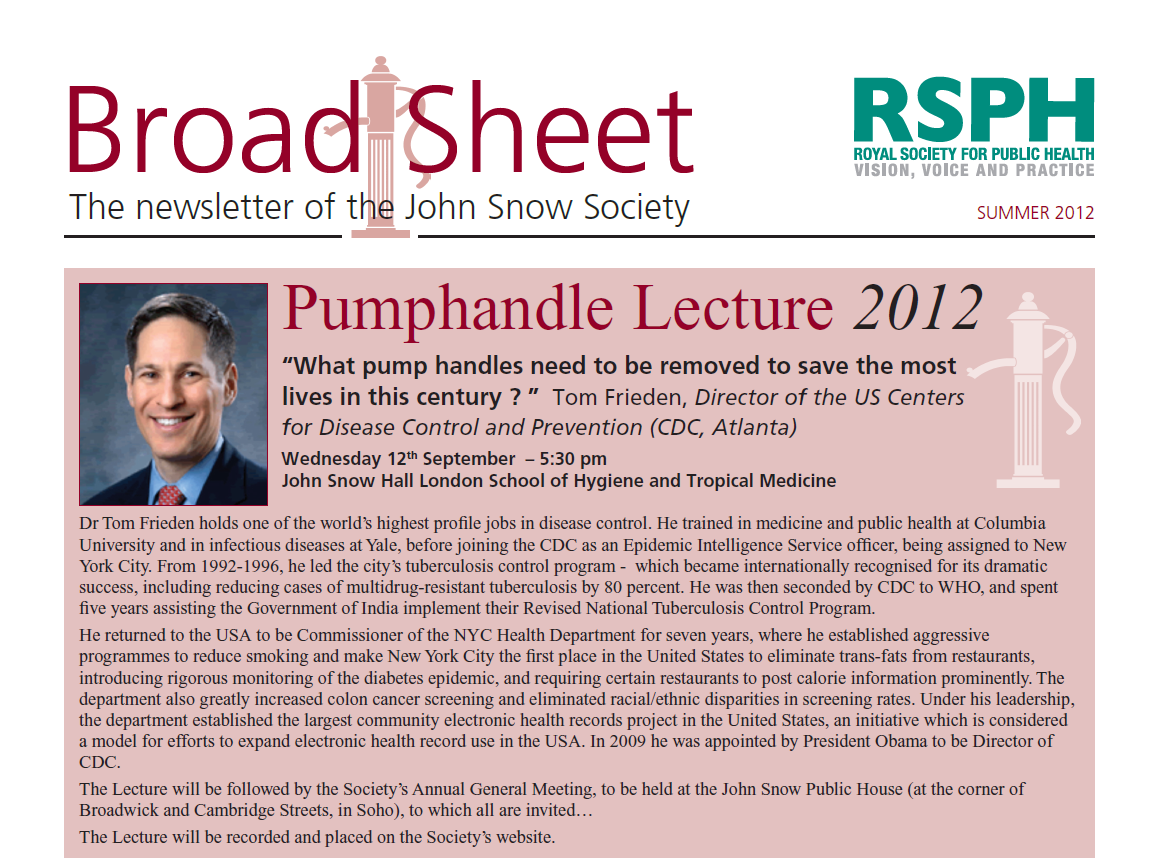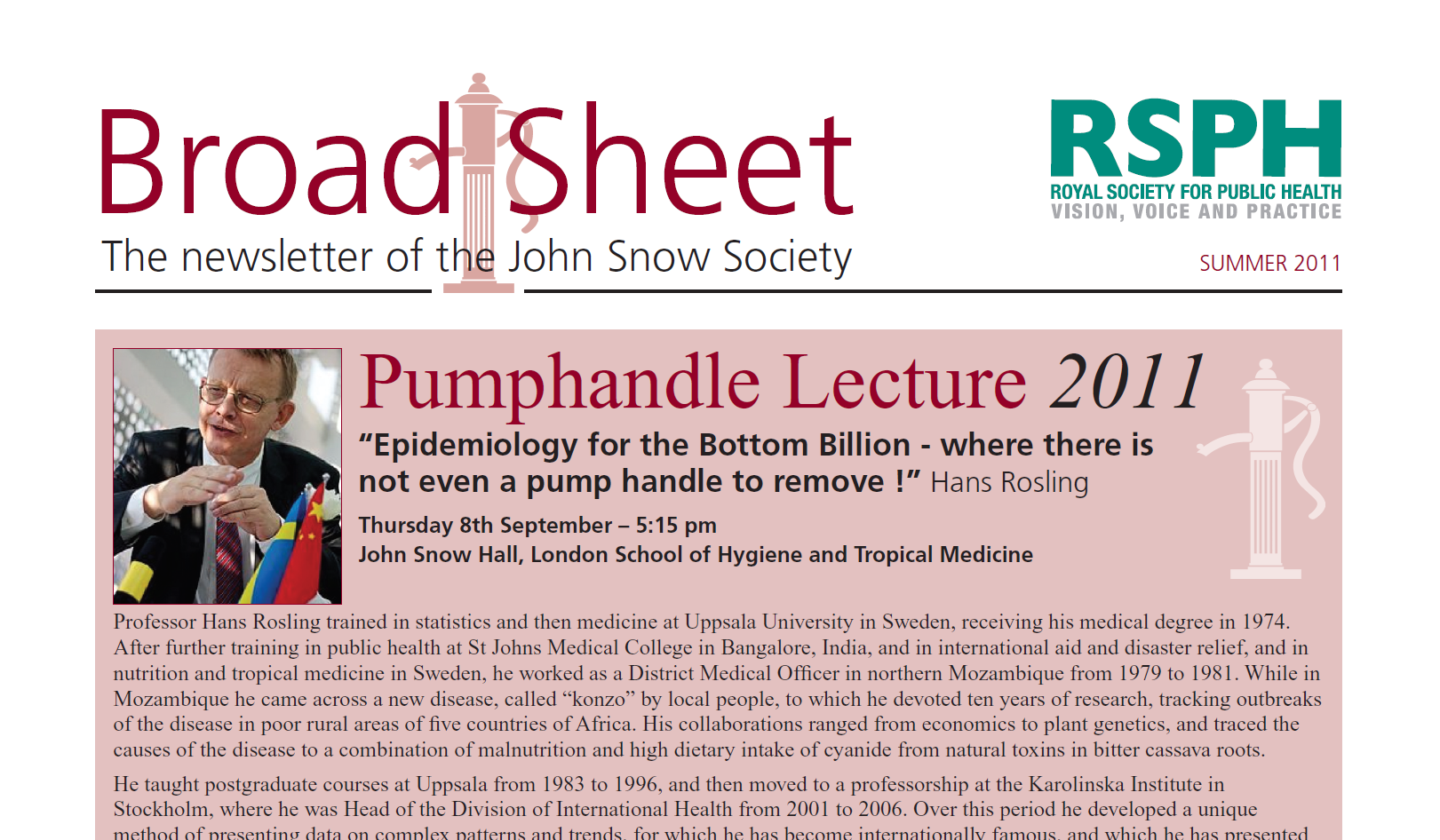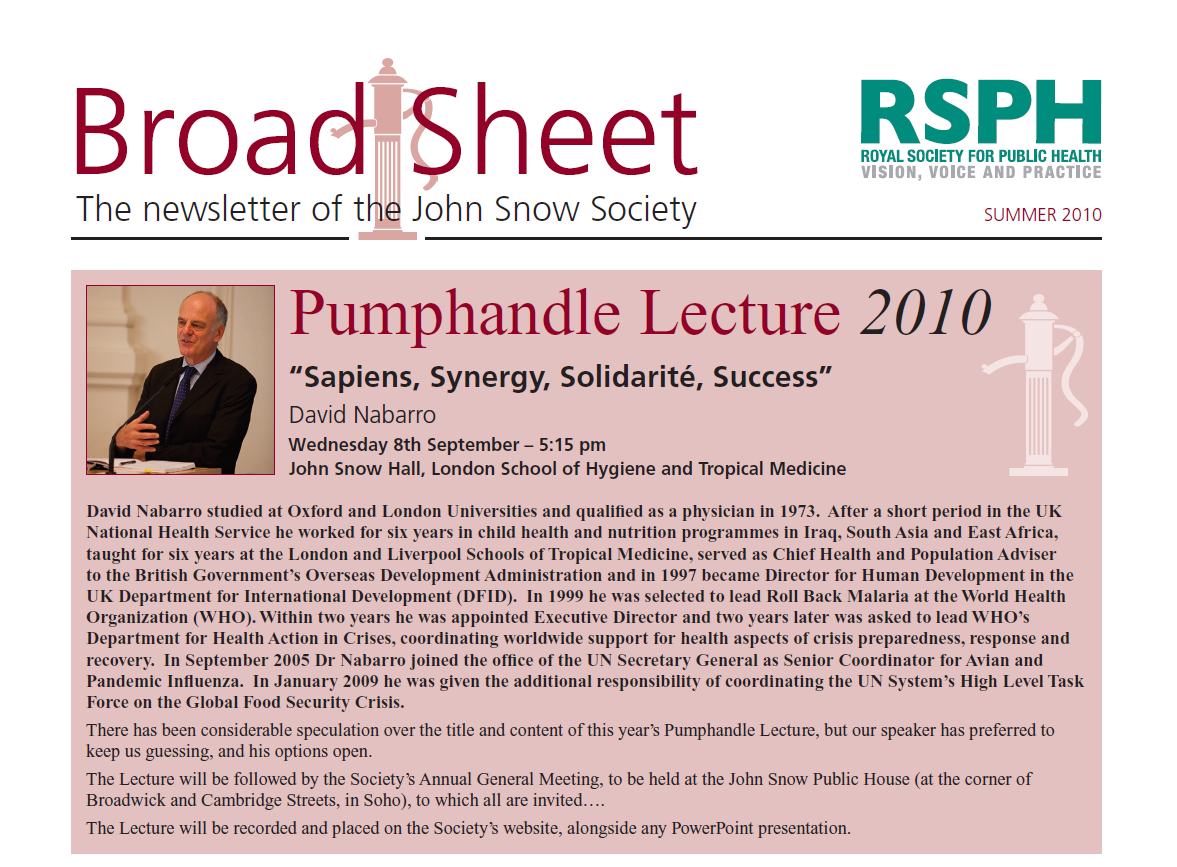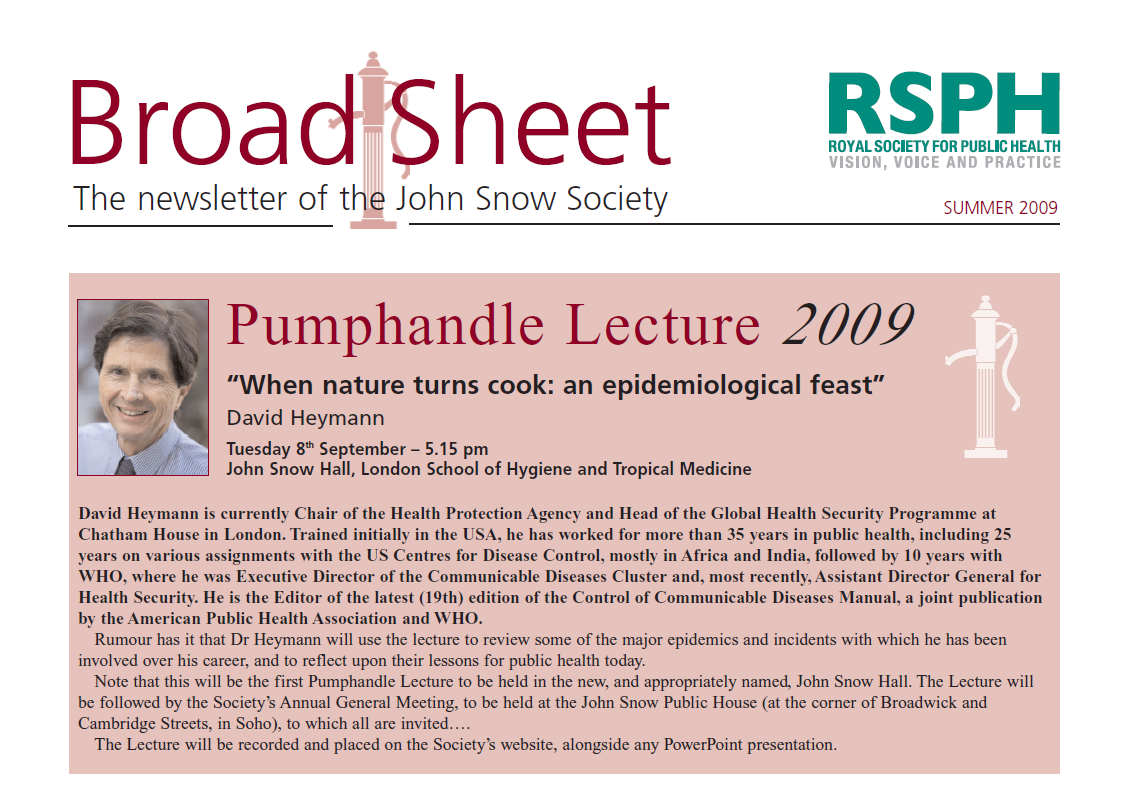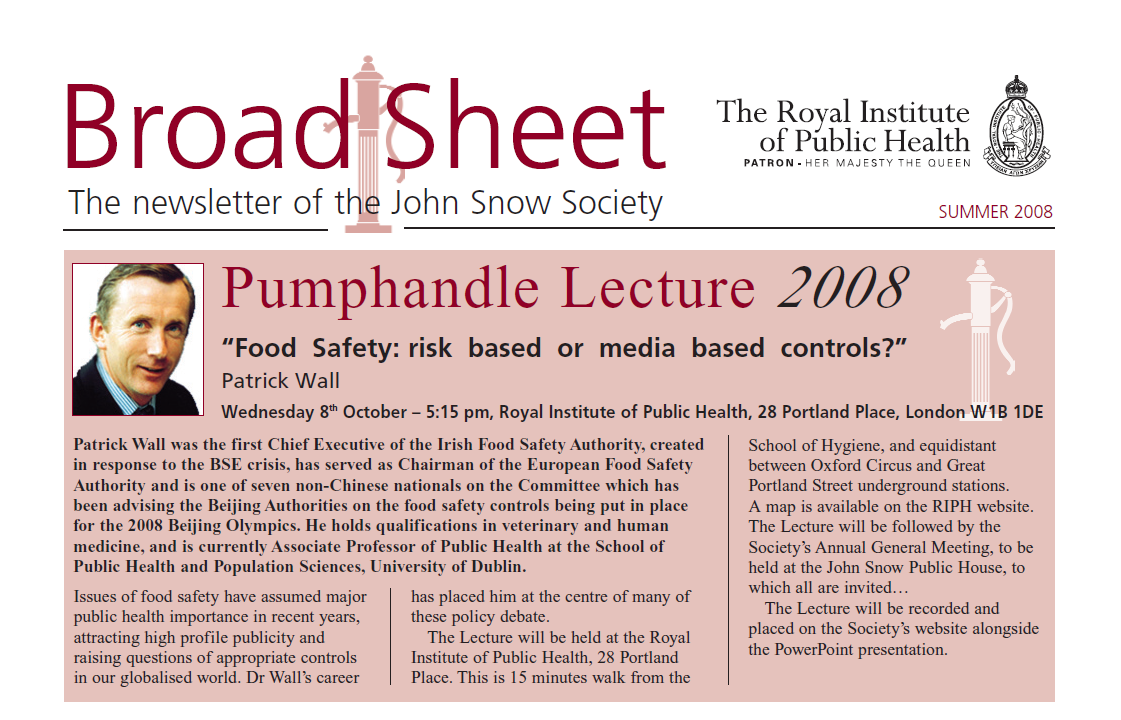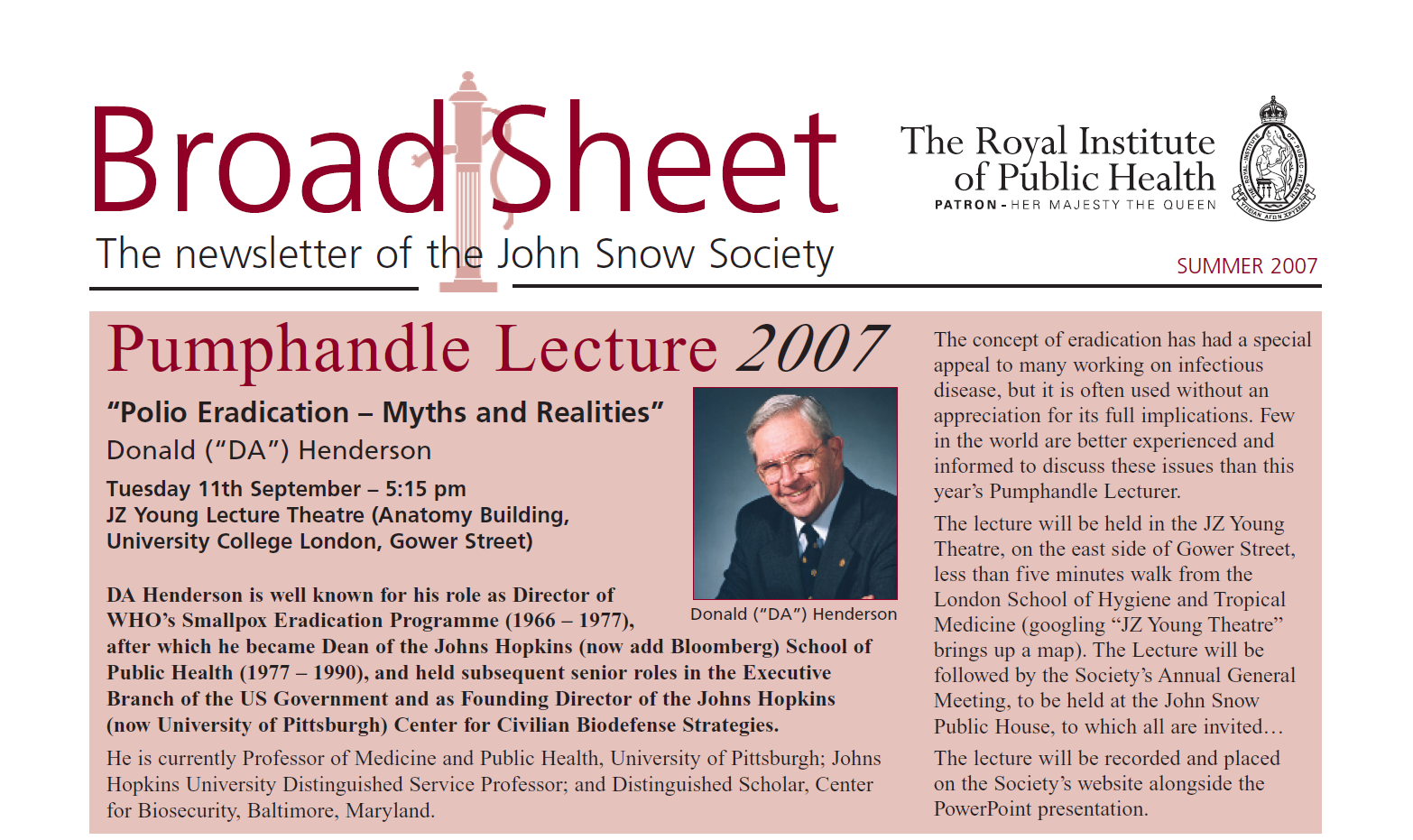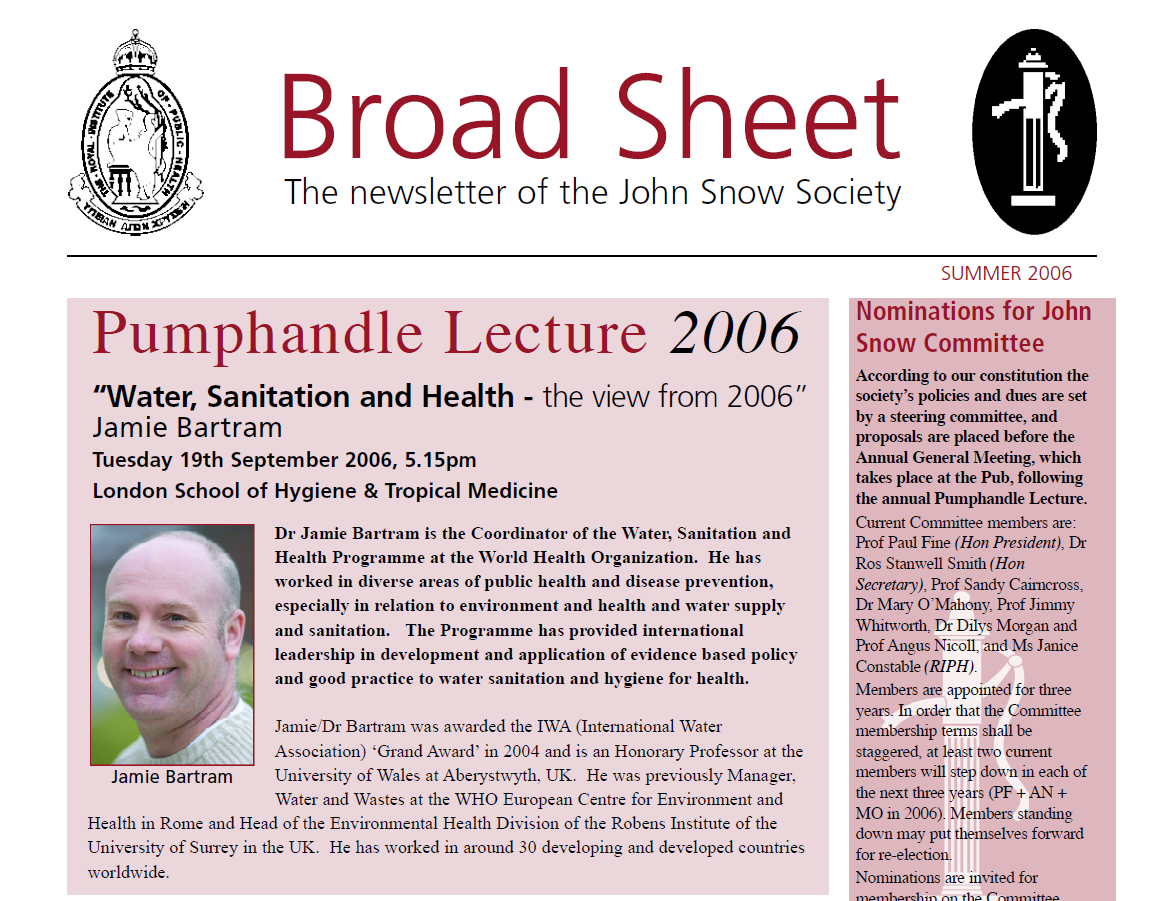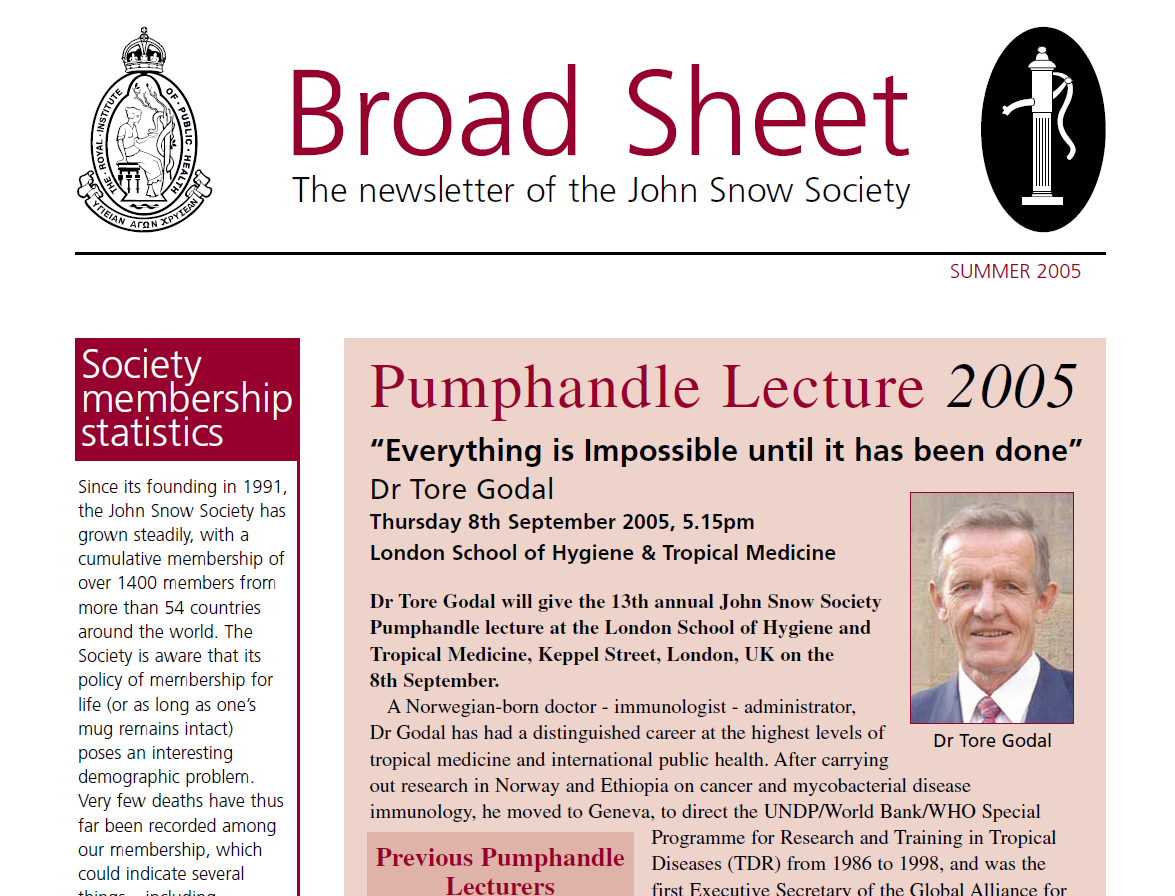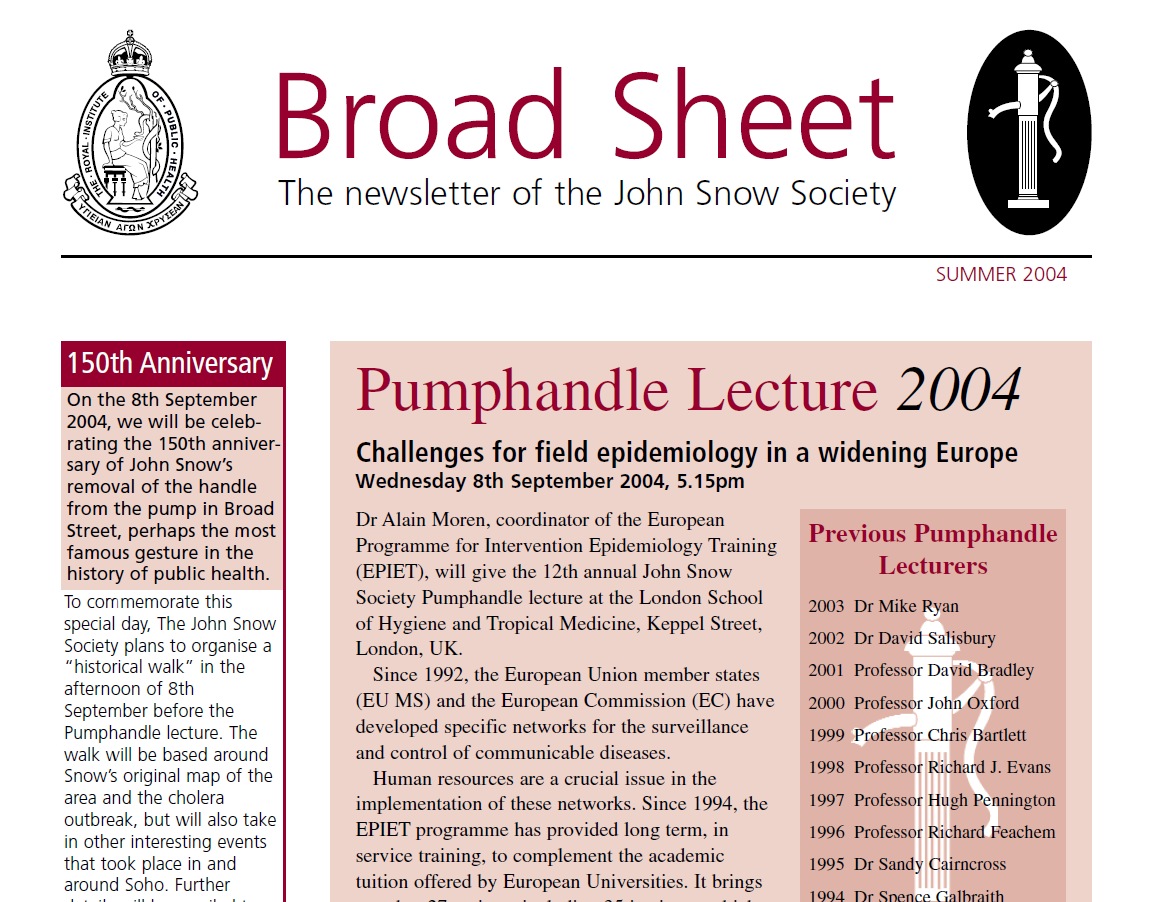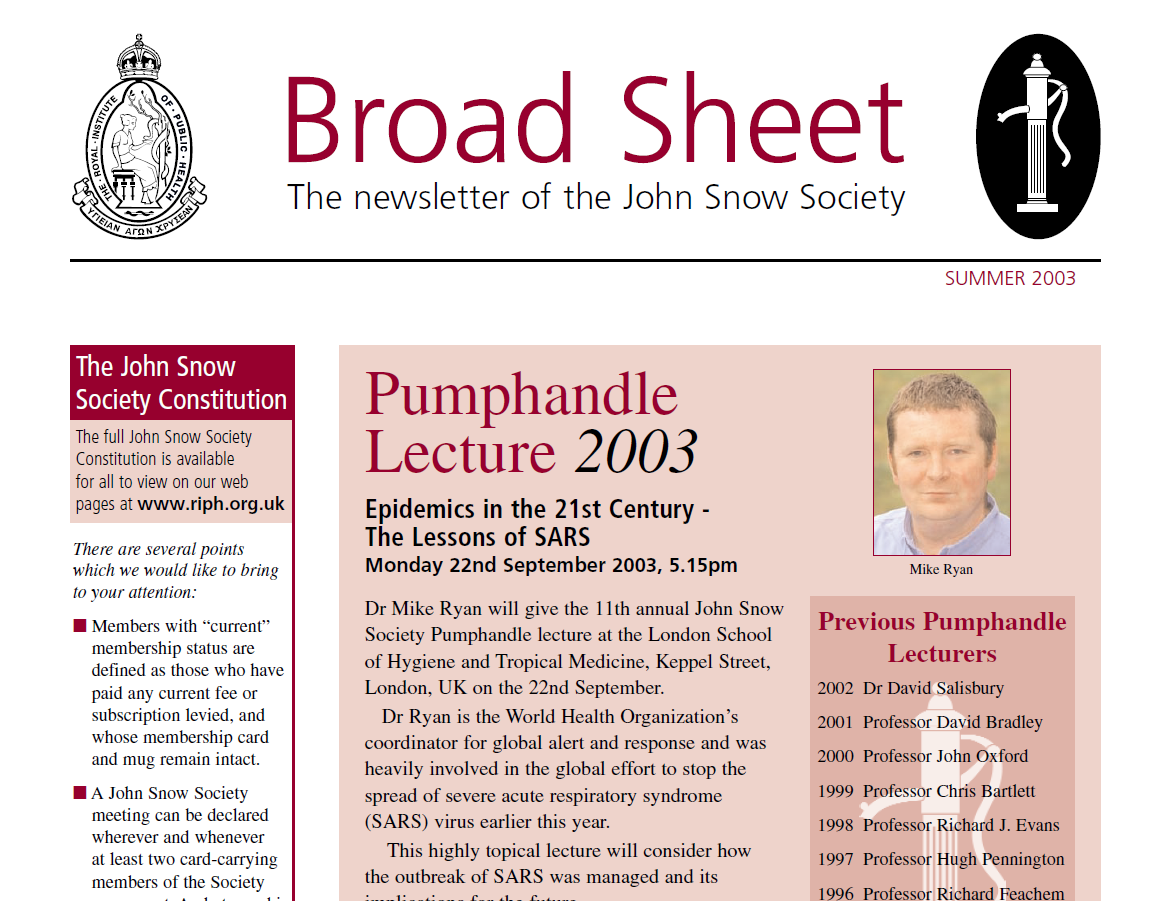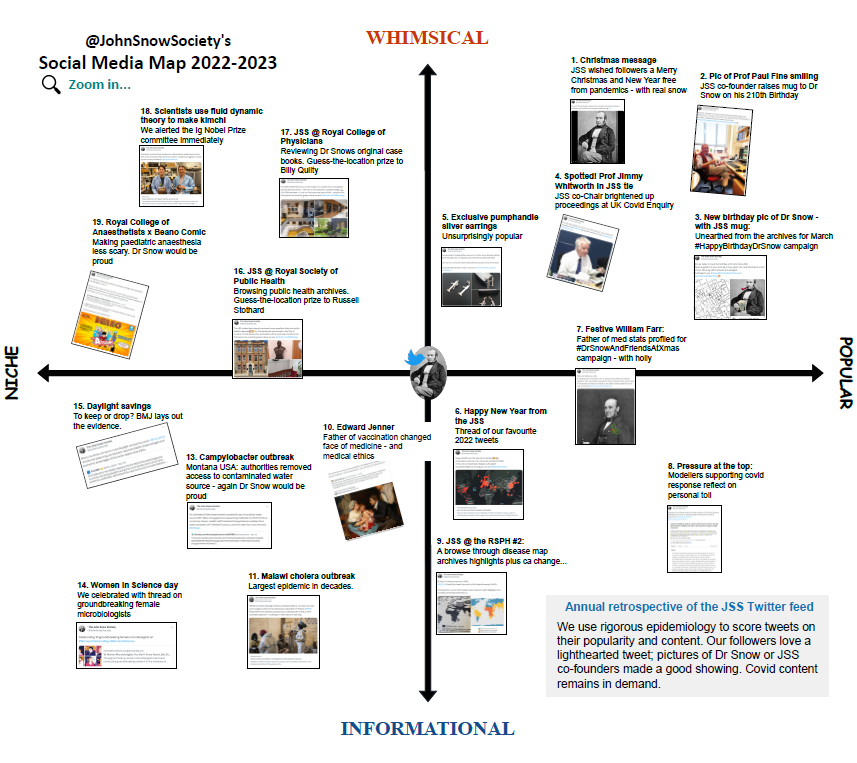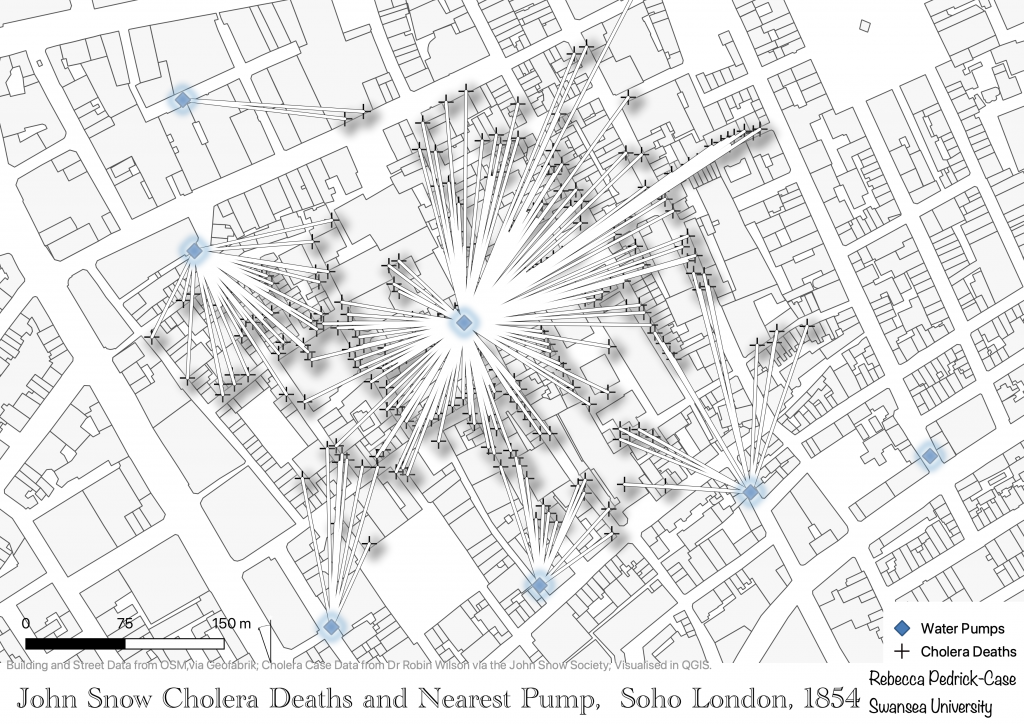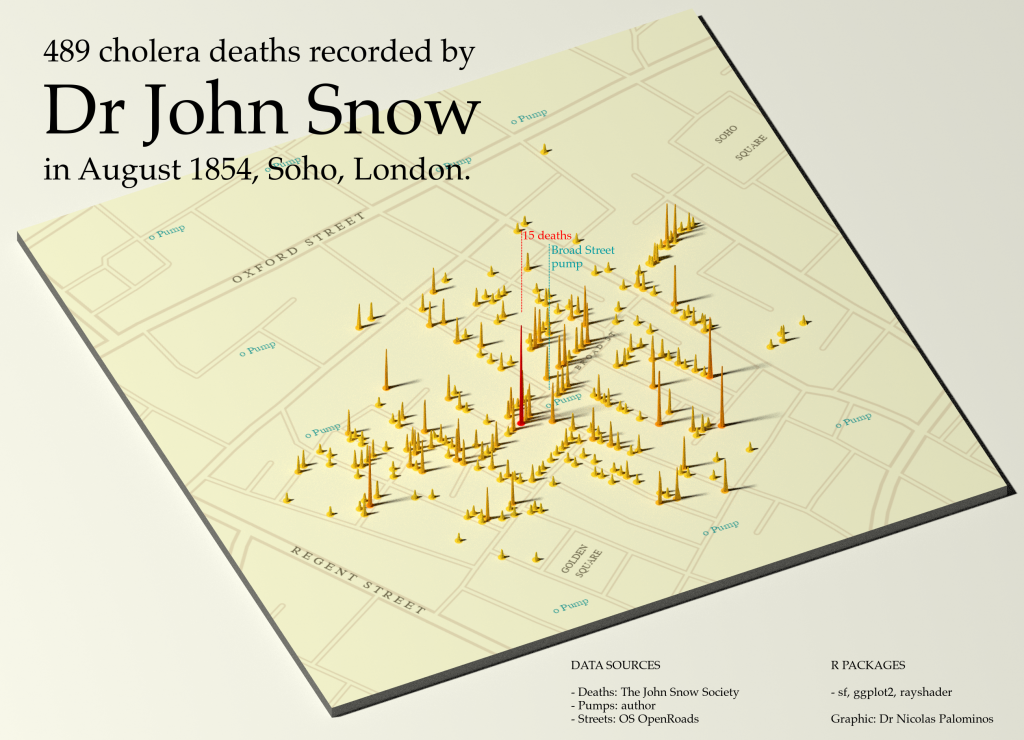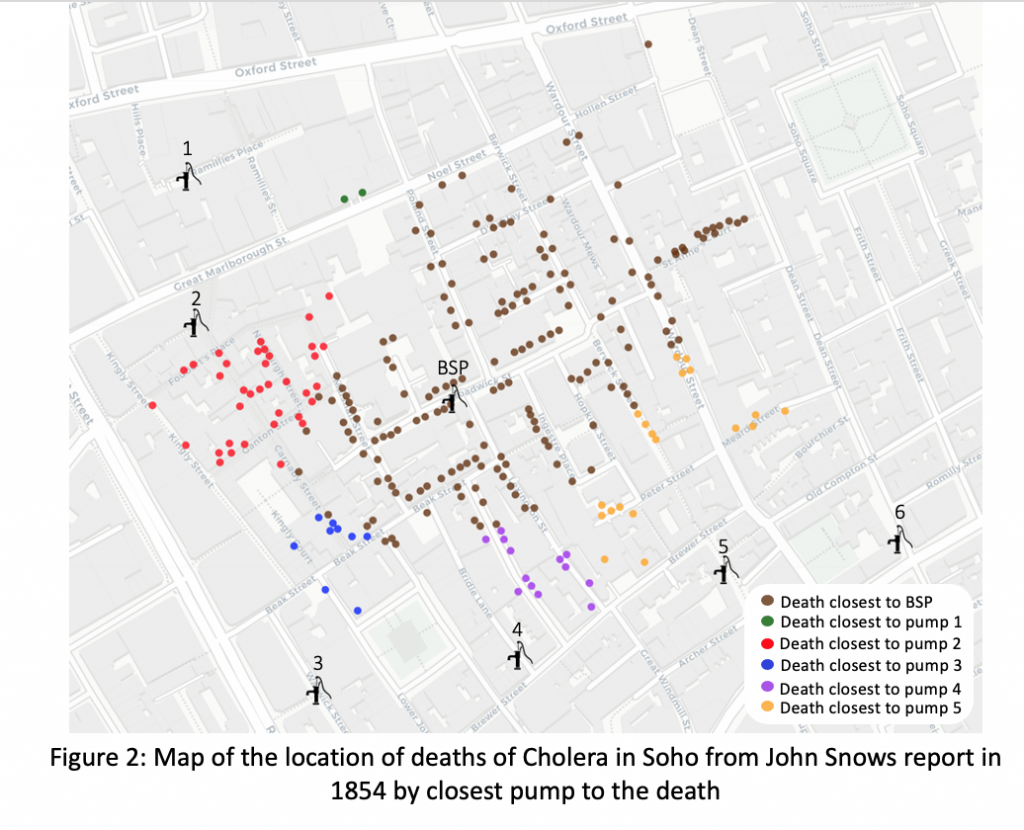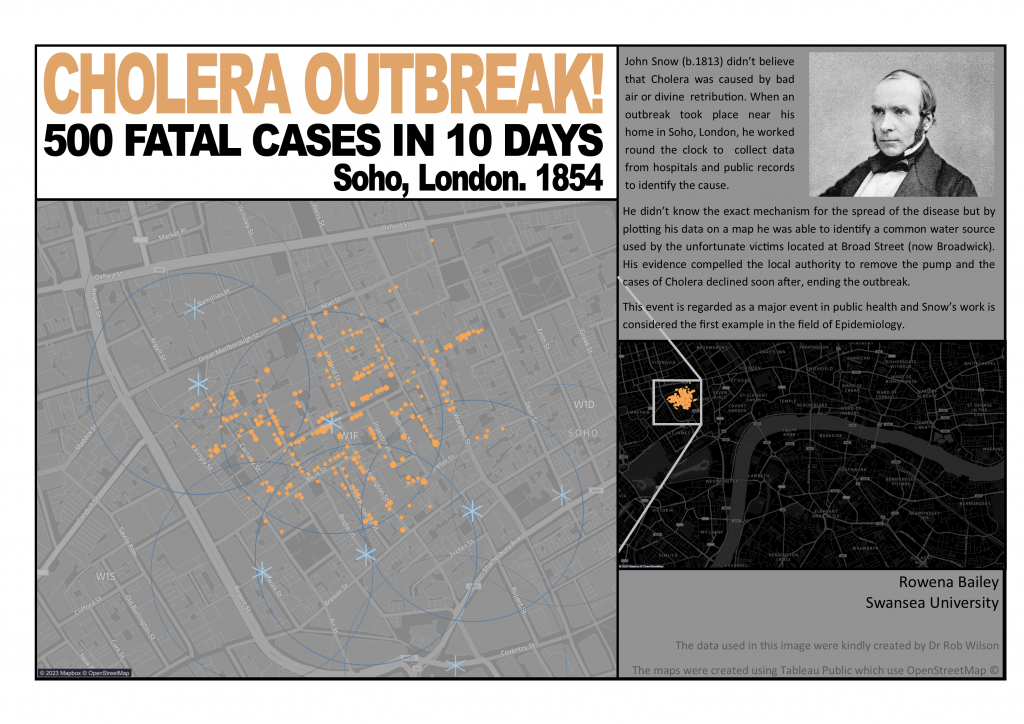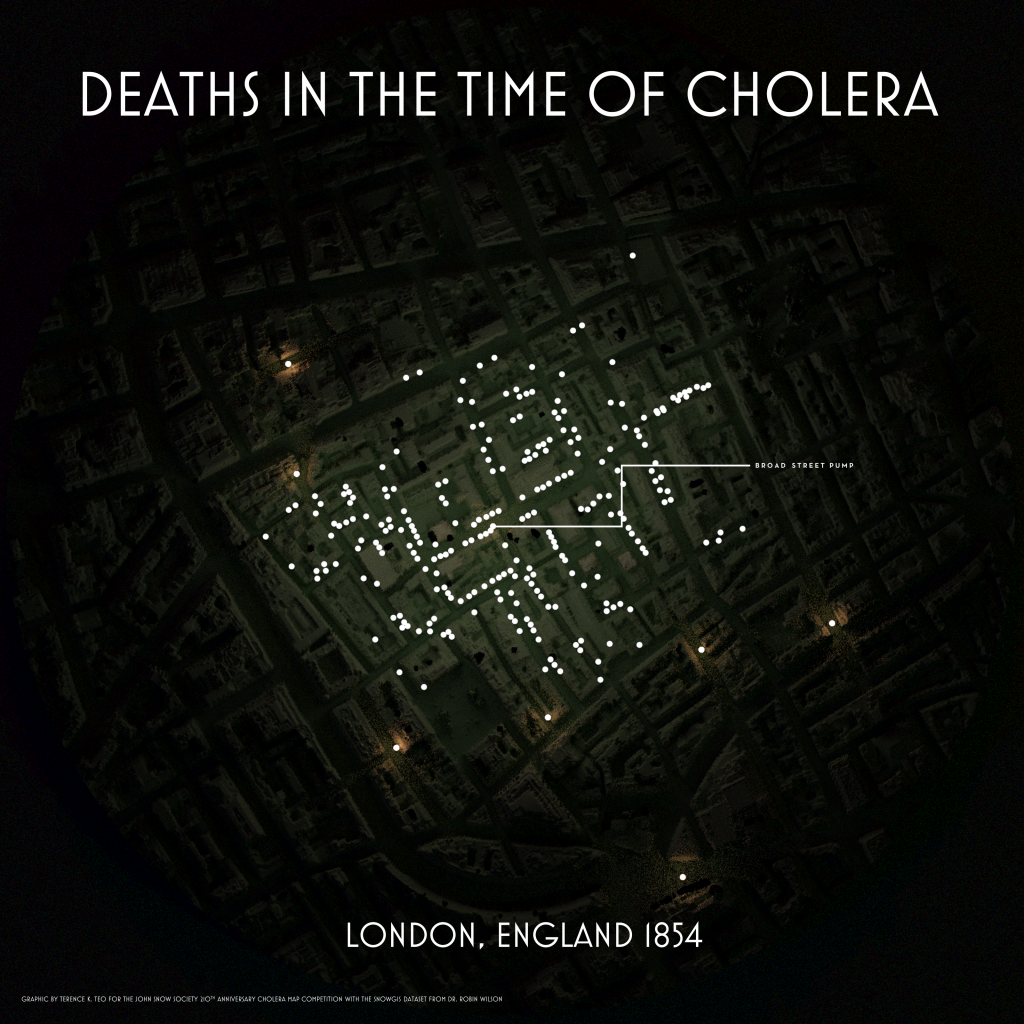Broadsheets
Pumphandle lectures
- 2024 Dr Soumya Swaminathan – Pandemics, Climate Change and the role of Science
- 2023 Dr Ngozi Okonjo-Iweala – Global health equity and the role of trade
- 2022 Andy Haines – The imperative of climate action for health
- 2021 Tony Fauci – COVID-19: Lessons Learned and Remaining Challenges
- 2020 John Nkengasong – Africa CDC: A New Public Health Order
- 2019 Eliza Manningham-Buller – Promoting Medical Science in an Age of Scepticism
- 2018 Dr Joanne Liu – The Cost of Fear: Humanitarian Crises in the Age of Anxiety
- 2017 Dr Richard Horton – Life and Death in 2100: Health, History and Human Contingency
- 2016 Dr Paul Spiegel – The Syrian conflict and its effect on the future of humanitarian response: We need a new pumphandle
- 2015 Atul Gawande – On removing the pumphandle: innovation and implementation
- 2014 Jeremy Farrar- Medicine and public health: divorced for too long
- 2013 Julie Cliff – From London to Mozambique, from cholera to konzo
- 2013 Bicentenary Event – Epidemiology Yesterday, Today & Tomorrow
- 2012: Tom Frieden – What pump handles need to be removed to save the most lives in this century?
- 2011: Hans Rosling – Epidemiology for the Bottom Billion – where there is not even a pump handle to remove!
- 2010 David Nabarro: Sapiens, Synergy, Solidarite, Success
- 2009 David Heymann: When Nature turns cook- The epidemiologist’s feast
- 2008 Professor Patrick Wall: Food Safety – Media based or Risk Based controls?
- 2007 D A Henderson: Polio Eradication, a reconsideration of strategy
- 2006 Dr Jamie Bartram: Drinking Water- Where Science Meets Policy
- 2005 Dr Tore Godal: Everything is Impossible until it has been done
- 2004 Dr Alain Moren: Challenges for field epidemiology training in a widening Europe
- 2003 Dr Mike Ryan: Epidemics in the 21st Century, the lesson of SARS
- 2002 Dr David Salisbury: Managing vaccine adverse effects
- 2001 Professor David Bradley: John Snow in the world of today
- 2000 Professor John Oxford: The search for permafrost and other victims of the 1918 Influenza
- 1999 Professor Chris Bartlett: Removing the pump handle at an international level
- 1998 Professor Richard J Evans: Koch, Pettenkofer and the search for the cause of cholera
- 1997 Professor Pennington: E. coli in Scotland- the relevance of John Snow and William Whewell’s consilience of induction
- 1996 Professor Richard Feachem: Would John Snow have joined the world bank?
- 1995 Dr Sandy Cairncross: Turning the Worm- The Guinea Worm eradication programme
- 1994 Dr Spence Galbraith: Dr John Snow – Early Life and Later Triumphs
- 1993 Dr Nick Ward: Global Polio Eradication- a call for action
Social Media Maps
Annual retrospective of the John Snow Society social media feed
Follow us at: @JohnSnowSociety
John Snow 210th Birthday Map Competition – Winners
To mark the 210th anniversary of John Snow’s birth, the John Snow Society launched a competition in September 2023 challenging enthusiasts to use creativity and modern methods to recreate his 1854 Soho map. Details of the original competition are available here.
We are delighted to share the winning entries below.
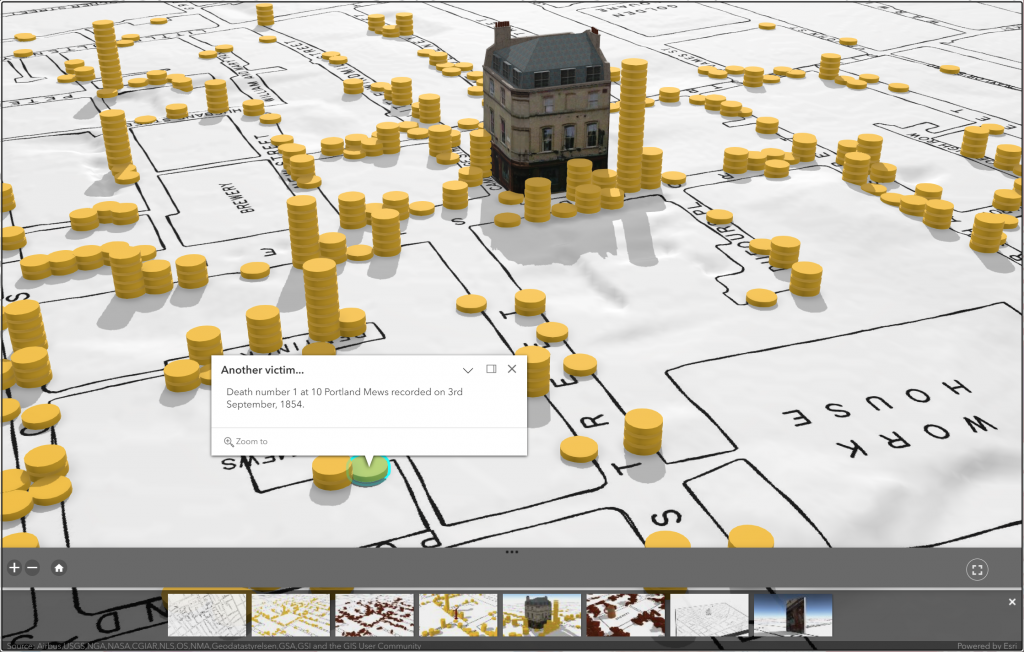
Highly Commended – Ken Field, California USA
Full link to the interactive maps.
Competition Judges:
Professor James Hargreaves (London School of Hygiene and Tropical Medicine; co-Chair, John Snow Society)
William Roberts (Chief Executive Royal Society for Public Health; Steering Committee, John Snow Society)
Dr Shay Soremekun (London School of Hygiene and Tropical Medicine; Steering Committee, John Snow Society)
Dr Patrick Nguipdop-Djomo (London School of Hygiene and Tropical Medicine; Steering Committee, John Snow Society)

